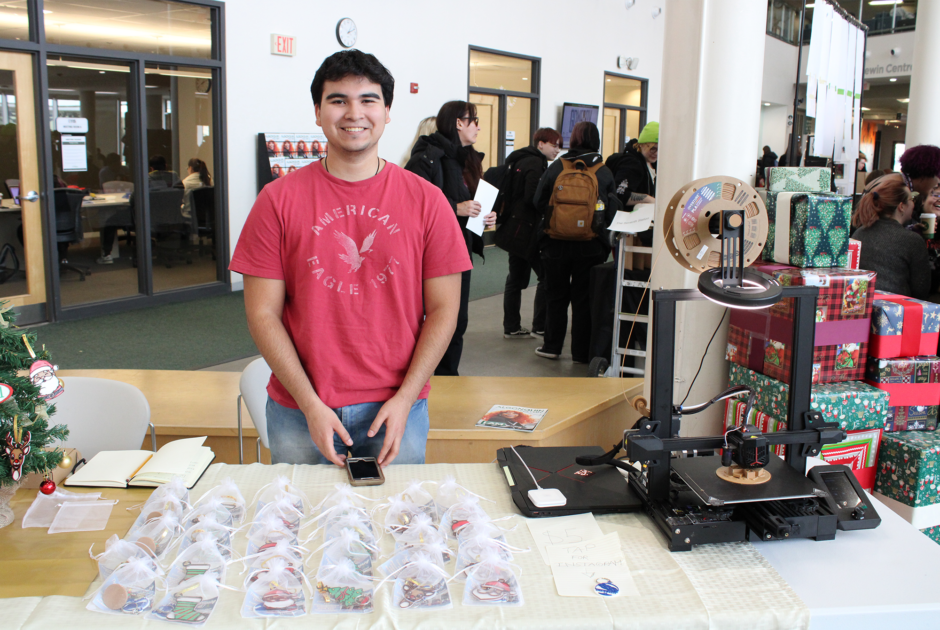Expert tells students to apply anti-racism lens to everything they create

Hamlin Grange, president of DiversiPro Inc., a diversity consulting company, hosted a powerful virtual session for the Algonquin College community Tuesday, June 16 to understand the dynamics of inclusion and exclusion.
Diversity and inclusion are the core values of Algonquin College. The event was organized to improve the college’s ability to recognize the subtleties of racism and to speak up against it.
“The purpose of the event was to create an opportunity for employees and students to participate in additional learning on equality and anti-racism, as part of the college’s commitment to being a place where everyone belongs,” said Sarah Gauen, an inclusion and diversity specialist at Algonquin College.
Addressing the issue that Algonquin College is non-immune from racism, Claude Brule, president and CEO of Algonquin College, initiated the webinar and introduced the speaker.
Grange asked the attendees how they were feeling through a poll launched during the virtual session.
According to the poll, out of the 180 attendees, 37 per cent were feeling anxious, seven per cent afraid and 47 per cent of the audience were optimistic.
Exploring the wave of emotions everyone is currently going through, Grange explained the process of transition.
Stemming from anxiety, the transition can lead to denial and sometimes disillusionment. It then progresses to acceptance and finally moving forward in life.
Describing his experience and emotions, Grange said: “Depending on the day, I feel a series of emotions. You have to be very mindful of self-care at this time. Take care of others, but yourself first. It’s like what they say about oxygen masks on airplanes – wear it yourself first to help others.”
Calling racism the reckoning virus before COVID-19, he encouraged attendees to rethink old concepts and insisted on applying an anti-racist lens in anything new we create; be it the police, health care or educating our students.
“It is high time when white people talk to other white people about racism. Do not look to people of colour to fix the problem. Someone once said to me, ‘White people need to be the ones to fix the problem they began,’” he said.
“Just being not racist is not enough; we have to be anti-racist,” Grange said.
Talking in detail about how leaders can be more inclusive, Grange prescribed methods to be more culturally adaptive.
Being aware of ‘personal cultural worldview’ and its impact, listening with empathy and not being afraid of vulnerability were some of the points he said could help in being a better inclusive leader.
Grange further suggested evaluating oneself on the Intercultural Development Continuum devised by Intercultural Development Inventory could be a good starting point to have bold conversations.
He also said, like most institutions, Algonquin is at the ‘minimization’ stage of the Continuum. Minimization, he explained, is when there’s discomfort with cultural differences, a polarization mindset, but these differences aren’t being heard or paid attention to. Minimization occurs when organizations are in a state of denial and focus on what’s in common than the differences.
“Appreciating and understanding those differences is the step forward. Moving towards the ‘adaptation’ mindset where you’re bridging these differences and are comfortable dealing with discomfort is the final step,” he said.
Grange also suggested that to be able to have bold conversations one must listen to understand and ask questions to clarify.
He concluded his talk with a final question: “What will you do next?”
The live stream was ended by an interactive Q&A session with the speaker.
“I really enjoyed this. This latest wave of protest has taught me that I need to speak out more and that white silence is violence,” wrote Sandra Iseman, one of the attendees of the virtual session.
For more updates and events related to inclusion and diversity, visit Algonquin’s diversity website.








